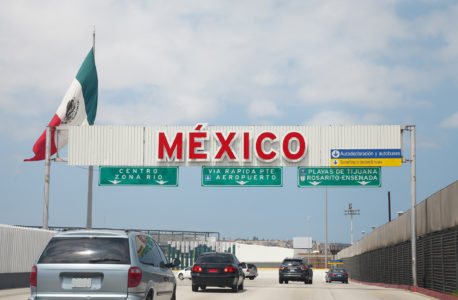Immigrants Rights Clinic Wins Emergency Access to Detainees

Like many cases around the country, Torres v. Department of Homeland Security shifted into overdrive with the COVID-19 pandemic. The suit—which the Immigrants’ Rights Clinic filed alongside the ACLU of Southern California and Sidley Austin—began in December 2018 and aimed to improve attorney access for immigrants detained at the Adelanto ICE Processing Center. Such access is incredibly important in the best of times; studies have shown that one of the best predictors of success in immigration proceedings is access to counsel.
But as Adelanto, like other overcrowded jails, prisons, and immigration detention centers, became an increasingly terrifying place to be, the issue of attorney access became even more urgent. Detainees need to speak with their lawyers not only to obtain assistance with their claims—the immigration court at Adelanto continues to hear cases—but also to pursue avenues for release from detention, as getting out of detention may become a life or death matter. And at the same time, ICE was severely restricting in-person visits by attorneys.
So three weeks ago, we filed for emergency relief. Three rounds of briefing and two hearings later, the Central District of California granted almost all the relief we had requested, requiring Adelanto to provide detainees with free, confidential phone access to their attorneys.
All the things that are generally true of clinic work were true of my experience during those hectic three weeks. It has been a privilege to work on such a critical issue at such a critical time with such high stakes. And I’ve had the chance to learn from enormously talented supervisors (Jayashri Srikantiah and Shanti Tharayil, who were always insightful, going through draft after draft at all hours), co-counsel (Eva Bitran and the other attorneys at the ACLU of Southern California and at Sidley Austin, who were receptive, appreciative, and patient), and clients (the lawyers at the Immigrant Defenders Law Center, for instance, somehow found time on short notice to talk with me again and again to build our factual record, even in the midst of scrambling to help their clients).
Even more than during ordinary times, though, being a (virtual) clinic student in the midst of a pandemic has been an important connection to the world outside. The COVID-19 pandemic has in all the obvious ways been isolating for me and luckily so. But the constant communication with our team, our clients, and other organizations in California and around the country trying to make things less terrible for people in immigration detention have been an essential reminder of the vast web of people hurting far worse than I and the people doing far more than I to make things better. To be even a small part of something, itself one effort among many, to make sure that in a time of crisis, those who the government is keeping from distancing themselves for their own protection had more means to reach out for help and maybe even could get to somewhere safer has been a breath of fresh air.
Derin McLeod is a 3L student in Stanford Law School’s Immigrants’ Rights Clinic.
